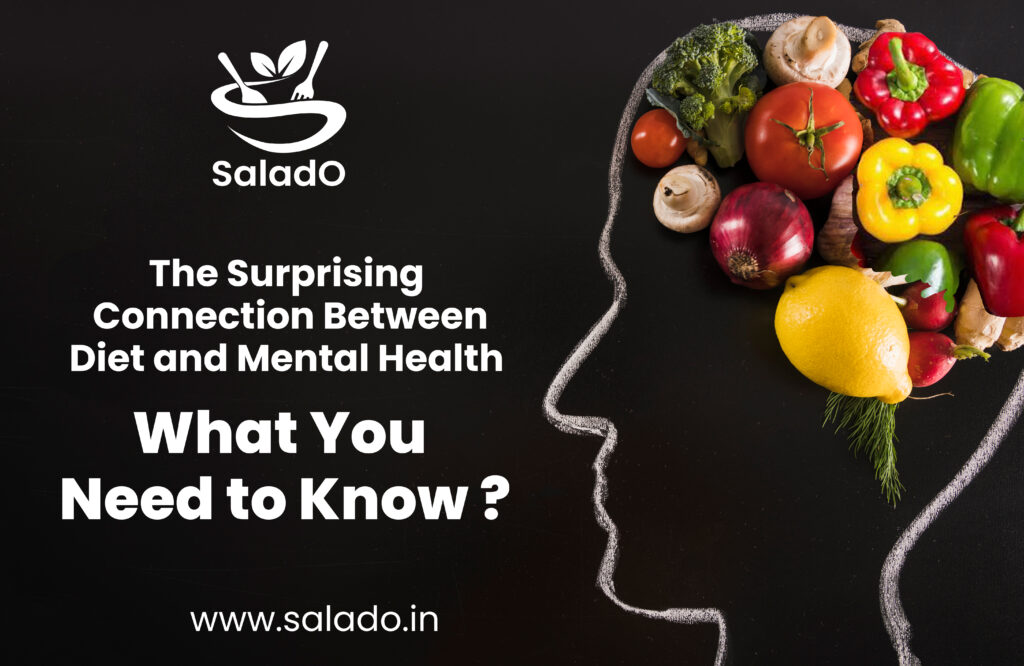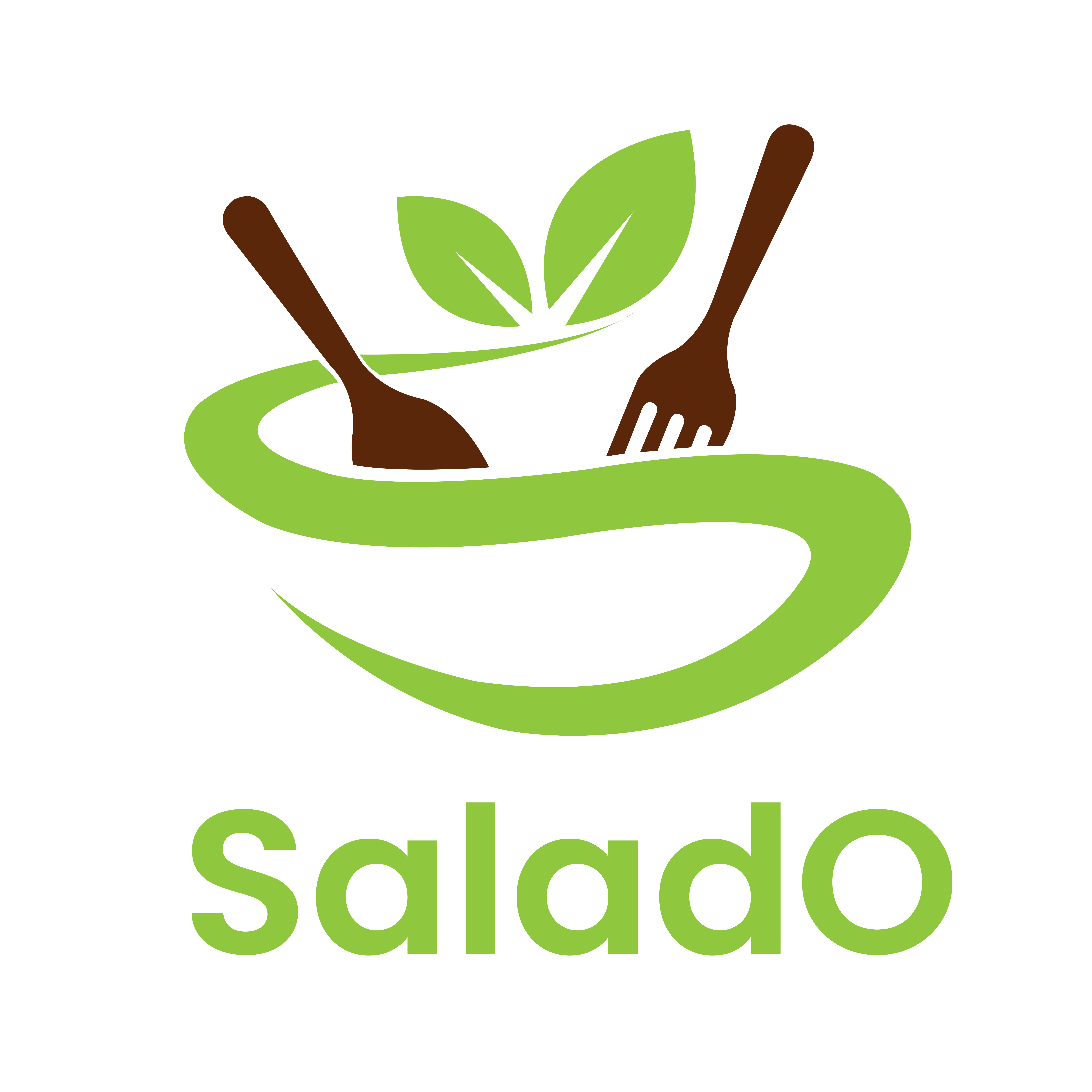
You’ve probably heard the saying “you are what you eat.” It turns out there may be more truth to that than you think when it comes to your mental health. Turns out the food you put in your body has a surprising impact on things like your mood, focus, memory, and even stress levels. In this article, you’ll uncover the science showing the connections between your diet and mental health. We’ll explore how nutrients like omega-3s, B vitamins, zinc, and antioxidants affect brain function. You’ll also learn practical tips for adjusting your diet to support mental wellness, boost productivity, and just feel better overall. Get ready to see food in a whole new light and start harnessing the power of nutrition to transform your outlook!
What Is the Connection Between Diet and Mental Health?
The foods you eat can directly impact your mental wellbeing. There are several ways your diet influences your mood and mental health:
Nutrient deficiencies. Lacking certain nutrients like B vitamins, iron, omega-3 fatty acids, and antioxidants can contribute to mental health issues such as depression or anxiety. Eating a balanced diet with lots of whole foods can help prevent these deficiencies and support your mental health.
Gut health. Your gut and brain are directly connected. Poor gut health or an imbalance of bacteria in your gut microbiome can negatively impact your mental health and mood. Eating probiotic foods, limiting sugar and processed foods, and staying hydrated can improve your gut health and support better mental wellbeing.
Inflammation. Chronic inflammation in the body may play a role in mental health disorders and mood changes. Following an anti-inflammatory diet by limiting red meat and sugary, fried and processed foods may help decrease inflammation and ease symptoms of depression or anxiety. Focus instead on foods like fatty fish, leafy greens, turmeric or ginger, berries, and olive oil.
The good news is making healthy changes to your diet can have significant effects on your mental health and outlook. Start by focusing on a balanced diet, gut health, reducing inflammation, and staying hydrated. Even small shifts like adding a serving of fatty fish each week or snacking on leafy greens and berries instead of chips or sweets can help boost your mood and support better mental wellbeing over time. The connection between your diet and mental health is powerful, so feed your body and mind with the nutritious fuel it needs.
How Does Diet Affect the Brain and Mental Health?
What you eat has a significant impact on your brain and mental well-being. The nutrients in your diet provide the building blocks for neurotransmitters—the chemicals that regulate mood and cognition. Eating a balanced diet with plenty of whole foods like fruits and vegetables, lean proteins, and whole grains provides the vitamins, minerals, healthy fats, and antioxidants your brain needs to function optimally.
Key Nutrients for Mental Health
Omega-3 fatty acids: Found in fatty fish like salmon and sardines, as well as chia and flax seeds. Omega-3s support brain health and may help reduce the risk of depression and anxiety.
B Vitamins: Important for synthesizing mood-regulating neurotransmitters. Found in poultry, seafood, eggs, and leafy greens. A deficiency in B6, B9 (folate) or B12 can contribute to symptoms of depression or anxiety.
Antioxidants: Help protect brain cells from damage by free radicals. Found in colorful fruits and vegetables like berries, leafy greens, tomatoes, and bell peppers. Antioxidant-rich diets are linked to better cognition and lower rates of mental decline.
Prebiotics and probiotics: The gut and brain are closely connected. Prebiotics (fiber) and probiotics (good bacteria) support gut health which in turn supports mental health and the nervous system. Yogurt, kefir, miso, and kimchi are good sources.
Zinc, magnesium, and iron: Important minerals for neurotransmitter production and blood flow in the brain. Most people don’t get enough of these key minerals which can negatively impact mood and mental health over time. Eat more pumpkin seeds, spinach, grass-fed beef, and dark chocolate.
Following a balanced diet with these key nutrients will help support optimal brain health and give you the best chance at warding off issues like depression or anxiety. Focus on whole foods, limit excess sugar and processed junk, and stay hydrated and you’ll be giving your mind and body the fuel it needs to thrive.
Popular Diets for Mental Health
When it comes to supporting your mental health through diet, several popular options may help reduce symptoms of anxiety and depression. Two of the most well-known are:
The Mediterranean Diet
The Mediterranean diet focuses on whole foods like fruits and vegetables, whole grains, legumes, nuts, and olive oil. It limits red meat and instead incorporates more fish and poultry. This balanced, nutritious diet has been shown to help reduce symptoms of both anxiety and depression. The omega-3 fatty acids in fish and olive oil, in particular, are great for brain health and may help regulate mood.
The Ketogenic Diet
The ketogenic or “keto” diet is high in fat, moderate in protein, and very low in carbohydrates… It causes your body to enter a metabolic state called ketosis, where it burns fat instead of carbs for energy. Some research shows the keto diet may help stabilize mood and ease anxiety and depression. When carbs are limited, your body may produce fewer fluctuations in blood sugar and insulin that can influence mood. The diet is also anti-inflammatory, which can support brain health. However, the keto diet is difficult to sustain long-term and may cause side effects in some people.
Other diets like the paleo diet, anti-inflammatory diet, and intermittent fasting may also positively impact mental health to some degree by reducing inflammation, balancing blood sugar, and supporting gut health. The connection between diet and mental health is complex but promising. Making healthy changes to how and what you eat could help you feel better in both body and mind.
Tips for Eating Healthy to Support Mental Wellbeing
When it comes to supporting your mental health, the food you eat is just as important as getting enough sleep or exercise. Here are some tips for improving your diet to boost your mood and overall wellbeing:
- Focus on lean proteins like fish, beans, and nuts. Protein helps regulate serotonin, the “feel-good” hormone in your brain. Aim for 20-30 grams with each meal. Examples include salmon, black beans, and almonds.
- Eat more probiotic foods such as yogurt, kefir, kimchi, or sauerkraut. The good bacteria in probiotics may help reduce symptoms of anxiety and depression. Try incorporating one serving per day.
- Increase your intake of omega-3 fatty acids which are essential for brain health and found in fatty fish like salmon, sardines, and trout. Aim for 2-3 servings of fatty fish each week. If fish isn’t your thing, you can also take fish oil supplements.
- Add more leafy greens, vegetables, and fruits to your diet. Produce is packed with vitamins, minerals, and antioxidants that are important for mental wellness. Try to fill half your plate with fruits and veggies at each meal.
- Stay hydrated and drink plenty of water throughout the day. Even mild dehydration can cause depressed mood and irritability. Aim for 6-8 glasses of water per day for optimal hydration and mental health.
- Limit excess sugar, refined carbs, and unhealthy fats like red meat or fried foods. These can negatively impact your mood and mental state. Have them only occasionally and in moderation.
- Consider keeping a food diary to identify how certain foods make you feel. You may notice connections between your diet and your mood or mental state. Use it to make changes to support your well-being.
The food you eat has a bigger impact on your mental health and mood than you realize. Following these tips can help ensure you’re getting the right fuel for both your body and your mind. Your mental wellbeing will thank you!
Frequently Asked Questions About Diet and Mental Health
What’s the connection between diet and mental health?
Your diet and mental health are closely linked. The foods you eat can impact your mood, stress levels, and overall well-being. Eating a balanced diet with lots of whole foods like fruits and vegetables, lean proteins, and whole grains provides the nutrients your body and brain need to function properly. On the other hand, a diet high in sugar, unhealthy fats, and processed foods may increase the risk of depression and anxiety or worsen symptoms.
What foods are good for my mental health?
Some of the best foods for your mood and mental wellbeing include:
Fish high in omega-3 fatty acids like salmon, trout,
Conclusion
So there you have it—the important role your diet can play in supporting your mental health. By focusing on foods with brain-boosting nutrients like fatty fish, leafy greens, probiotic-rich yogurt, and berries, you set yourself up for success in the brain health department. Limiting sugary, processed foods does your mood a major solid, too. Making even a few simple swaps in your normal routine can add up to big changes in how you feel mentally and emotionally. And that bright, stable state of mind makes it so much easier to pursue your goals and enjoy life. So do your mood a favor and take a closer look at what lands on your plate each day. With a little tweaking, you can eat your way to a happier headspace


